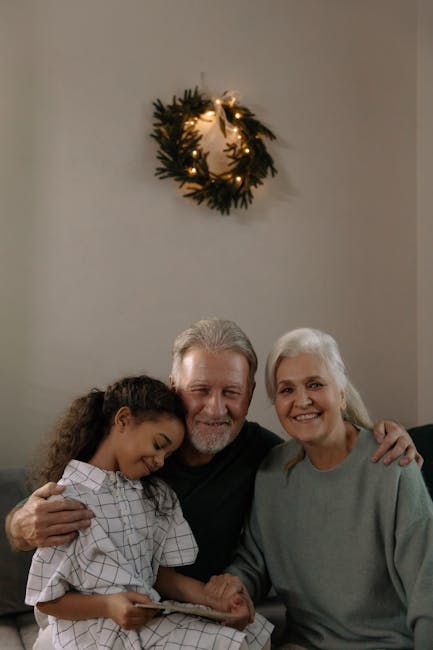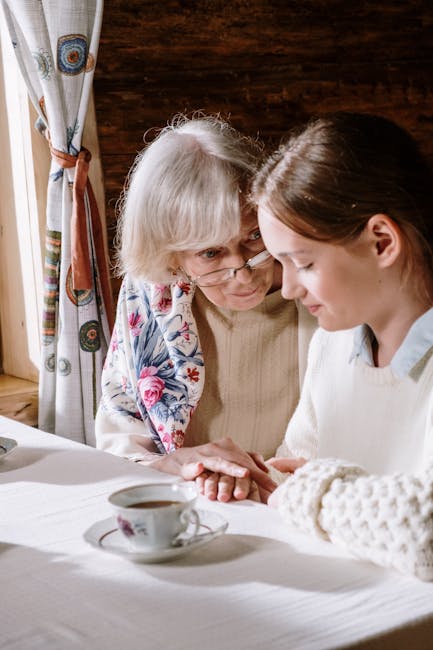Developing a deeper connection with someone often begins with a simple yet profound act: embracing vulnerability. It’s about peeling back the layers of our carefully constructed walls and allowing others to see us as we truly are—flaws, fears, and all. But why is vulnerability so powerful, and how can it transform our relationships? Let’s dive into the heart of this topic and uncover how vulnerability can lead to stronger, more meaningful connections.
Key Takeaways
- Vulnerability is essential for building authentic and lasting relationships.
- It fosters trust, empathy, and emotional intimacy.
- Embracing vulnerability requires courage and small, intentional steps.
- Overcoming fears of judgment can lead to personal growth and deeper bonds.
Understanding Vulnerability in Relationships
Definition of Vulnerability
At its core, vulnerability means being open and honest about your thoughts, feelings, and experiences, even when it feels uncomfortable.
It’s not about oversharing or seeking pity. Instead, it’s about showing your authentic self—your joys, struggles, and everything in between.
Think of vulnerability as the bridge that connects two hearts. Without it, relationships often remain surface-level, lacking depth and true understanding.
The Importance of Vulnerability in Building Authentic Connections
Why does vulnerability matter? Because it’s the foundation of authenticity.
When you’re vulnerable, you invite others to do the same. This mutual openness creates a space where trust and understanding can flourish.
Imagine trying to build a house without a solid foundation. That’s what relationships are like without vulnerability—they may look fine on the outside but crumble under pressure.
Common Misconceptions About Vulnerability
Many people equate vulnerability with weakness, but this couldn’t be further from the truth.
Being vulnerable takes immense courage. It’s about facing the fear of rejection and choosing to share anyway.
Another misconception is that vulnerability makes you dependent on others. In reality, it strengthens your independence by helping you understand and express your needs.

The Role of Vulnerability in Building Trust
How Vulnerability Fosters Trust in Relationships
Trust and vulnerability go hand in hand. When you share your true self, you signal to others that you trust them.
This act of trust often inspires reciprocity, creating a cycle of openness and honesty. Over time, this builds a strong foundation of mutual respect and loyalty.
Creating a Safe Space for Open Communication
For vulnerability to thrive, there must be a safe space for open communication.
This means listening without judgment, validating feelings, and showing empathy. It’s about creating an environment where both parties feel seen and heard.
If you’re looking to foster such connections, check out this guide on building healthy relationships.
Examples of Vulnerability Strengthening Trust
Consider a friend who admits they’re struggling with anxiety. By sharing this, they’re not only being vulnerable but also inviting you to support them.
Or think about a partner who apologizes for a mistake and takes responsibility. This act of vulnerability can repair trust and strengthen the bond.

Emotional Vulnerability and Its Impact
Embracing Emotional Vulnerability in Daily Life
Emotional vulnerability isn’t reserved for big, dramatic moments. It’s woven into the fabric of everyday life.
It’s in the “I’m sorry” after an argument, the “I miss you” text, or the “I need help” admission. These small acts of openness can have a profound impact on relationships.
How Vulnerability Fosters Empathy and Understanding
When you’re vulnerable, you allow others to see the world through your eyes. This fosters empathy and deepens understanding.
For example, sharing a personal struggle can help someone realize they’re not alone, creating a bond of shared experience.
The Connection Between Vulnerability and Emotional Intimacy
Emotional intimacy is the glue that holds relationships together, and vulnerability is the key to unlocking it.
By sharing your inner world, you invite others to do the same, creating a connection that goes beyond the surface.

Practical Ways to Embrace Vulnerability
Admitting Shortcomings and Taking Responsibility
One of the simplest ways to practice vulnerability is by admitting your mistakes.
Saying, “I was wrong” or “I could have handled that better” shows humility and a willingness to grow.
Expressing Appreciation and Gratitude
Gratitude is a form of vulnerability. It’s about acknowledging the impact someone has had on your life and expressing it openly.
A heartfelt “thank you” can go a long way in strengthening relationships.
Sharing Personal Stories and Experiences
Sharing your story—whether it’s a childhood memory or a recent challenge—can create a sense of connection and relatability.
For more on fostering meaningful connections, explore this article on promoting social relationships.

The Transformative Power of Vulnerability
How Vulnerability Leads to More Authentic Relationships
Authenticity is the cornerstone of meaningful relationships, and vulnerability is the path to get there.
When you’re genuine, you attract people who appreciate you for who you are, not who you pretend to be.
The Impact of Vulnerability on Personal Growth
Vulnerability isn’t just about relationships—it’s also about personal growth.
By facing your fears and embracing your imperfections, you develop resilience and self-awareness.
For more on this, check out this resource on developing resilience.
Developing Deeper Connections Through Genuine Interest in Others
Vulnerability isn’t just about sharing—it’s also about listening.
Showing genuine interest in someone else’s story can deepen your connection and foster mutual vulnerability.

Overcoming Barriers to Vulnerability
Addressing Fears of Judgment and Rejection
Fear of judgment is one of the biggest barriers to vulnerability.
But here’s the thing: the people who truly matter will accept you as you are.
Building Self-Confidence to Embrace Vulnerability
Confidence and vulnerability go hand in hand. The more you believe in your worth, the easier it becomes to share your true self.
Strategies for Practicing Vulnerability in Small Steps
Start small. Share a little more than you usually would in a conversation.
Over time, these small acts of vulnerability will build your confidence and deepen your connections.

Vulnerability as a Foundation for Empathy
How Vulnerability Encourages Understanding and Compassion
When you’re vulnerable, you invite others to see your humanity. This fosters compassion and understanding.
Relating to Others on a Deeper Level Through Shared Experiences
Shared experiences are a powerful way to connect. By being open about your struggles, you create a space for others to do the same.
Strengthening Bonds Through Mutual Vulnerability
Mutual vulnerability is like a dance—it requires both partners to take a step forward.
When both parties are open and honest, the bond becomes unbreakable.
The Long-Term Benefits of Vulnerability in Relationships
Creating Lasting and Meaningful Connections
Vulnerability is the secret ingredient to lasting relationships.
It’s what turns acquaintances into lifelong friends and partners into soulmates.
Enhancing Communication and Conflict Resolution
Open communication is the backbone of any relationship, and vulnerability makes it possible.
By expressing your feelings honestly, you pave the way for effective conflict resolution.
Building a Foundation of Mutual Respect and Trust
At the end of the day, vulnerability is about trust.
When you’re willing to be vulnerable, you show that you respect and trust the other person—and that’s the foundation of any strong relationship.

In a world that often celebrates perfection, vulnerability is a radical act of courage.
It’s about showing up, being seen, and connecting on a deeper level.
So, the next time you’re tempted to hide behind a mask, remember: vulnerability isn’t a weakness—it’s your greatest strength.
For more insights on fostering meaningful relationships, explore this article on the significance of connections.
Sources: Mark Manson on vulnerability, LinkedIn article on deeper connections.
FAQ: Unlocking Deeper Connections Through Vulnerability – Your Guide to Meaningful Relationships
What does it mean to develop a deeper connection through vulnerability?
Developing a deeper connection through vulnerability means allowing yourself to be open, honest, and authentic with others. It involves sharing your thoughts, feelings, and experiences, even when it feels uncomfortable, to build trust and emotional intimacy in relationships.
Why is vulnerability important in building strong relationships?
Vulnerability fosters trust, empathy, and understanding, which are essential for meaningful relationships. When you share your true self, it encourages others to do the same, creating a safe space for mutual growth and connection.
How can I become more comfortable with being vulnerable?
Start small by sharing your thoughts and feelings with someone you trust. Practice self-compassion and remind yourself that vulnerability is a strength, not a weakness. Over time, you’ll find it easier to open up and connect with others on a deeper level.
What are some common fears associated with vulnerability?
Many people fear rejection, judgment, or appearing weak when they are vulnerable. These fears are natural but can be overcome by focusing on the potential for deeper, more meaningful connections rather than the risks.
How can I encourage vulnerability in others?
Lead by example by being open and authentic in your interactions. Create a safe and non-judgmental environment where others feel comfortable sharing their thoughts and feelings. Show empathy and actively listen to build trust.
Can vulnerability ever be harmful in relationships?
While vulnerability is generally beneficial, it’s important to share with people who have earned your trust. Oversharing with someone who may not respect your boundaries can lead to emotional harm. Be mindful of who you open up to and ensure it’s a safe space.
What role does self-awareness play in vulnerability?
Self-awareness helps you understand your emotions, triggers, and boundaries, making it easier to express yourself authentically. It also allows you to recognize when and how to be vulnerable in a way that aligns with your values and needs.
How can vulnerability improve communication in relationships?
Vulnerability encourages honest and open communication, allowing both parties to express their needs, concerns, and feelings. This transparency reduces misunderstandings and strengthens the emotional bond between individuals.
What are some practical ways to practice vulnerability in daily life?
Start by sharing small, personal details about your day or feelings with someone you trust. Practice active listening and respond with empathy when others open up to you. Journaling your thoughts and emotions can also help you become more comfortable with vulnerability.
How can I overcome the fear of being judged when I’m vulnerable?
Remind yourself that everyone has insecurities and that being vulnerable is a universal human experience. Focus on the potential for deeper connections rather than the fear of judgment. Surround yourself with supportive people who value authenticity.



